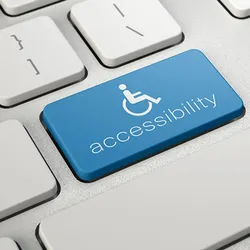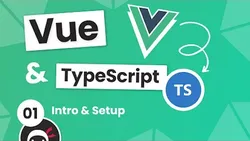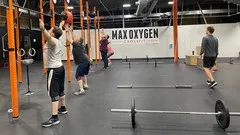
Promoting Accessible Workplaces with Assistive Technology 
This course provides learners with the knowledge and skills to promote accessible workplaces and educational institutions through the use of Assistive Technology (AT) tools. Learners will gain an understanding of disabilities represented in the workforce and educational institutions, as well as how to instruct in the use of AT tools such as screen readers, Immersive Reader, and Accessibility Checker. Additionally, learners will learn how to construct accessible written materials and presentations, and be exposed to audiovisual storytelling to encourage active learning about inclusivity. ▼
ADVERTISEMENT
Course Feature
![]() Cost:
Cost:
Free
![]() Provider:
Provider:
Coursera
![]() Certificate:
Certificate:
Paid Certification
![]() Language:
Language:
English
![]() Start Date:
Start Date:
12th Jun, 2023
Course Overview
❗The content presented here is sourced directly from Coursera platform. For comprehensive course details, including enrollment information, simply click on the 'Go to class' link on our website.
Updated in [March 06th, 2023]
This course provides learners with an overview of Assistive Technology (AT) tools and how to promote accessible workplaces and educational institutions. Learners will gain increased awareness of many types of disabilities represented in the workforce and educational institutions. They will learn about the AT tools built into Microsoft and Windows products, including screen readers, Immersive Reader, Accessibility Checker, etc. and how to instruct in their use. Learners will also become proficient in inclusive communication practices in the workplace or classroom by learning to construct accessible written materials and presentations. The course will also offer audiovisual storytelling to encourage active learning about a world outside of “abled privilege.” Upon completion of this course, learners will have a better understanding of how to promote accessible workplaces and educational institutions with Assistive Technology.
[Applications]
Upon completion of this course, learners will be able to apply their knowledge of Assistive Technology to promote accessible workplaces and educational institutions. They will be able to use the tools they have learned to create accessible written materials and presentations, as well as instruct others in the use of Assistive Technology. Learners will also be able to use audiovisual storytelling to create a more inclusive environment in the workplace or classroom.
[Career Paths]
1. Assistive Technology Specialist: Assistive Technology Specialists are responsible for providing technical support and training to individuals with disabilities in the use of assistive technology. They are also responsible for researching, evaluating, and recommending assistive technology solutions to meet the needs of individuals with disabilities. Assistive Technology Specialists must stay up-to-date on the latest developments in assistive technology and be able to provide advice and guidance on the best solutions for each individual.
2. Accessibility Consultant: Accessibility Consultants are responsible for helping organizations create and maintain an accessible environment for all users. They work with organizations to ensure that their websites, products, and services are accessible to people with disabilities. Accessibility Consultants must be knowledgeable about the latest accessibility standards and regulations, and be able to provide guidance on how to make products and services more accessible.
3. Accessibility Trainer: Accessibility Trainers are responsible for providing training to organizations on how to create and maintain an accessible environment. They must be knowledgeable about the latest accessibility standards and regulations, and be able to provide guidance on how to make products and services more accessible. Accessibility Trainers must also be able to provide training on the use of assistive technology and how to create accessible written materials and presentations.
4. Accessibility Advocate: Accessibility Advocates are responsible for advocating for the rights of people with disabilities. They work to ensure that organizations are aware of the needs of people with disabilities and are taking steps to make their products and services more accessible. Accessibility Advocates must be knowledgeable about the latest accessibility standards and regulations, and be able to provide guidance on how to make products and services more accessible.
[Education Paths]
1. Bachelor of Science in Assistive Technology: This degree program focuses on the development and implementation of assistive technology to help people with disabilities gain access to the same opportunities as those without disabilities. Students will learn about the different types of assistive technology, how to use them, and how to create and maintain an inclusive environment. They will also learn about the legal and ethical considerations of using assistive technology. This degree is becoming increasingly popular as more employers are recognizing the importance of creating an accessible workplace.
2. Master of Science in Rehabilitation Counseling: This degree program focuses on helping individuals with disabilities to live independently and to gain access to the same opportunities as those without disabilities. Students will learn about the different types of disabilities, how to assess and diagnose them, and how to develop and implement rehabilitation plans. They will also learn about the legal and ethical considerations of working with individuals with disabilities. This degree is becoming increasingly popular as more employers are recognizing the importance of creating an inclusive workplace.
3. Doctor of Education in Special Education: This degree program focuses on the development and implementation of educational programs for individuals with disabilities. Students will learn about the different types of disabilities, how to assess and diagnose them, and how to develop and implement educational plans. They will also learn about the legal and ethical considerations of working with individuals with disabilities. This degree is becoming increasingly popular as more employers are recognizing the importance of creating an inclusive educational environment.
4. Master of Science in Accessibility and Inclusion: This degree program focuses on the development and implementation of strategies to promote accessibility and inclusion in the workplace and educational institutions. Students will learn about the different types of disabilities, how to assess and diagnose them, and how to develop and implement strategies to promote accessibility and inclusion. They will also learn about the legal and ethical considerations of working with individuals with disabilities. This degree is becoming increasingly popular as more employers are recognizing the importance of creating an inclusive workplace and educational environment.
Course Provider

Provider Coursera's Stats at AZClass
Discussion and Reviews
0.0 (Based on 0 reviews)
Explore Similar Online Courses

Vue 3 with TypeScript Jump Start

Intro to the Queryverse a Julia data science stack

Python for Informatics: Exploring Information

Social Network Analysis

Introduction to Systematic Review and Meta-Analysis

The Analytics Edge

DCO042 - Python For Informatics

Causal Diagrams: Draw Your Assumptions Before Your Conclusions

Whole genome sequencing of bacterial genomes - tools and applications

Accessibility for Individuals in Wheelchairs within Aviation

Aging in Place & Home Accessibility

Enhancing Fitness Center Inclusivity and Accessibility
 Related Categories
Related Categories
 Popular Providers
Popular Providers
Quiz
 Submitted Sucessfully
Submitted Sucessfully
1. What is the main purpose of this course?
2. What type of tools will learners learn about in this course?
3. What type of learning will this course encourage?
4. The needs of disabled workers and students remain largely overlooked by a working society of _______ persons.
Correct Answer: abled


Start your review of Promoting Accessible Workplaces with Assistive Technology